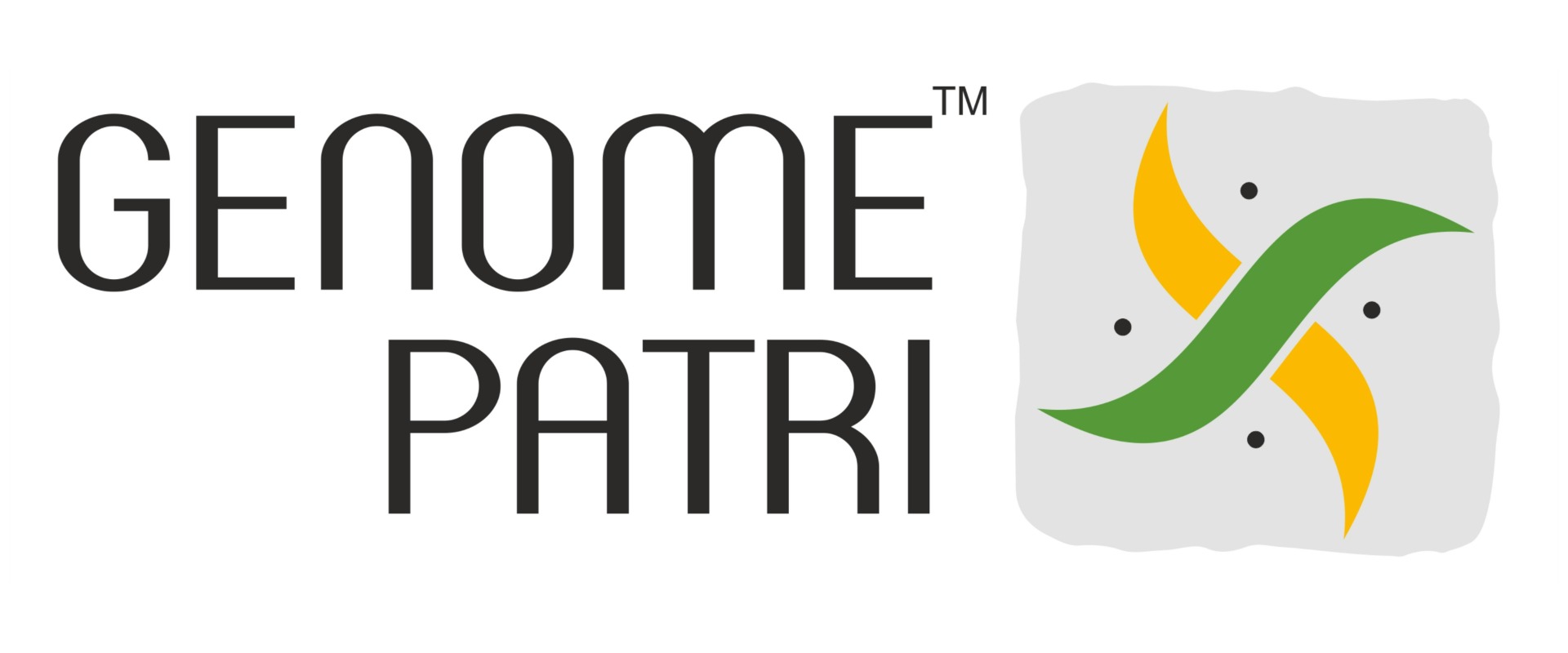World Thyroid Day: Unleashing the Power of Thyroid Health with Genomic Testing
May 25, 2023
1884 Views
On May 25th each year, World Thyroid Day is celebrated worldwide to highlight the importance of thyroid health and increase awareness about thyroid disorders. The thyroid gland, a small butterfly-shaped organ located in the neck, plays a vital role in regulating various bodily functions. However, millions of people worldwide suffer from thyroid-related conditions, many of whom remain undiagnosed. This blog aims to shed light on the significance of World Thyroid Day and emphasize the importance of thyroid health.
Understanding the thyroid gland
The thyroid gland may be small, but its impact on our overall well-being is significant. This incredible organ produces hormones that regulate metabolism, energy levels, body temperature, heart rate, and more. It acts as a master controller, influencing the function of various organs and systems within our bodies.
Thyroid Disorders: the hidden villains
But even superheroes have their arch-nemeses. In the thyroid‘s case, it battles against a host of disorders that can throw your life off balance. From hyperthyroidism (when it goes into overdrive) to hypothyroidism (when it slows down), thyroid nodules, and the dreaded thyroid cancer, these villains can wreak havoc on your well-being.
Risk factors of thyroid disease
Gender: Women are more prone to developing thyroid disease compared to men. This could be due to hormonal factors, particularly during pregnancy and menopause.
Age: Thyroid disorders can occur at any age, but certain conditions, such as hypothyroidism and thyroid nodules, are more common in older individuals.
Family History: Having a family history of thyroid disease, such as autoimmune thyroid conditions like Hashimoto‘s thyroiditis or Graves‘ disease, increases the risk of developing thyroid problems.
Autoimmune Diseases: Certain autoimmune disorders, such as type 1 diabetes, rheumatoid arthritis, celiac disease, and lupus, are associated with a higher risk of developing thyroid disease.
Iodine Levels: Both iodine deficiency and excess iodine intake can contribute to thyroid dysfunction. In areas with low dietary iodine, hypothyroidism may be more prevalent. Conversely, excessive iodine intake, often due to supplements or medications, can lead to hyperthyroidism.
Radiation Exposure: Exposure to high levels of radiation, particularly during childhood, increases the risk of developing thyroid cancer or other thyroid disorders. This includes exposure to radiation therapy for cancer treatment or environmental radiation sources.
Certain Medications: Some medications, such as lithium (used to treat bipolar disorder), amiodarone (used for heart rhythm problems), and interferon-alpha (used to treat certain cancers and viral infections), can affect thyroid function and potentially lead to thyroid disease.
Pregnancy and Postpartum: Pregnancy-related factors can increase the risk of developing thyroid disease. These include postpartum thyroiditis, gestational thyroid disorders, and an increased risk of autoimmune thyroid conditions during or after pregnancy.
Smoking: Cigarette smoking has been associated with an increased risk of various thyroid disorders, including Graves‘ disease and thyroid cancer.
Stress: While stress itself may not directly cause thyroid disease, it can potentially trigger or worsen symptoms in individuals who are predisposed to thyroid problems.
Lifestyle and diet modifications can play a supportive role in managing thyroid disease and promoting overall thyroid health. While these modifications may not cure the underlying condition, they can help alleviate symptoms and improve overall well-being.
Here are some lifestyle and diet recommendations:
Eat a Well-Balanced Diet: Include a variety of nutrient-dense foods in your diet, such as fruits, vegetables, whole grains, lean proteins, and healthy fats. This provides essential vitamins, minerals, and antioxidants necessary for thyroid function and overall health.
Adequate Iodine Intake: Iodine is crucial for thyroid hormone production. If you have an iodine deficiency, ensure you consume iodine-rich foods like seaweed, iodized salt, fish, dairy products, and eggs. However, excessive iodine intake can be harmful, so it‘s important to maintain a balance. Consult with a healthcare professional to determine your specific iodine needs.
Limit Goitrogenic Foods: Some foods contain substances called goitrogens that can interfere with thyroid function by inhibiting iodine uptake. Examples include cruciferous vegetables (e.g., broccoli, cauliflower, cabbage, Brussels sprouts) and soy products. While these foods are healthy and can be consumed in moderation, it may be beneficial to cook or ferment them, as this reduces the goitrogenic effect.
Manage Stress: Chronic stress can negatively impact thyroid function. Explore stress-management techniques such as exercise, meditation, deep breathing exercises, yoga, and engaging in activities you enjoy to help reduce stress levels.
Regular Exercise: Engage in regular physical activity, as it can support a healthy metabolism and overall well-being. Consult with your healthcare professional to determine suitable exercise routines based on your condition and fitness level.
Get Sufficient Sleep: Aim for adequate sleep each night, as sleep deprivation can disrupt hormonal balance and exacerbate thyroid-related symptoms. Establish a consistent sleep schedule and create a sleep-friendly environment to promote quality sleep.
Avoid Smoking: If you smoke, quitting is highly recommended, as smoking has been associated with an increased risk of thyroid disease and can worsen symptoms in individuals already affected.
Medication Compliance: If you‘re prescribed medication for thyroid disease, ensure you take it as prescribed and follow up with regular check-ups to monitor your condition and adjust medication dosage if necessary.
Stay Hydrated: Drink plenty of water to maintain hydration and support overall health. Hydration is important for optimal thyroid function and metabolism.
Work with a Healthcare Professional: It‘s essential to work closely with a healthcare professional who specializes in thyroid conditions. They can provide personalized recommendations based on your specific condition, monitor your progress, and make necessary adjustments to your treatment plan.
Remember, lifestyle and diet modifications should complement, not replace, medical treatment for thyroid disease. It‘s important to consult with a healthcare professional to determine the best approach for your individual situation.

Genomics to the rescue!
Enter preventive genomics, the game-changing approach that utilizes your genetic blueprint to decode potential risks. It‘s like having a secret weapon to anticipate the villains‘ moves! Genetic testing unravels the hidden clues in your genes, revealing specific variations associated with thyroid disorders. Imagine having the power to predict and prevent the onset of these conditions before they even strike! It‘s the stuff of superheroes.
The genetic superheroes
Now, let‘s meet some genetic superheroes. Certain gene variations like TPO, TSHR, and DUOX2 have been unmasked as the culprits behind autoimmune thyroid diseases. Armed with this knowledge, you can join forces with healthcare professionals to devise personalized prevention and management strategies. It‘s like having your own superhero squad!
Embrace your inner superhero
But what does all this mean for you? It means taking control of your own destiny and unleashing your inner superhero! Genetic testing empowers you to make informed decisions about your lifestyle, tailor your preventive measures, and stay one step ahead of those pesky villains. With this newfound knowledge, you become the protagonist in your thyroid health story.
The role of genetic variations
In the intricate tapestry of genetics, variations can occur—a genetic orchestra playing slightly different tunes. These variations can impact how the thyroid gland operates and interacts with other bodily systems. Some genetic variations are associated with an increased risk of thyroid disorders, shedding light on the underlying genetic factors at play.
The promise of personalized medicine
The emerging field of personalized medicine takes advantage of genetic knowledge to tailor treatments to an individual‘s unique genetic profile. In the realm of thyroid health, this means that understanding a person‘s genetic makeup can guide treatment decisions, such as selecting the most effective medication or determining the optimal dosage. It‘s a transformative approach that holds the potential to revolutionize patient care.
Unraveling complex interactions
Thyroid genetics also sheds light on the intricate interplay between genes and environmental factors. While genetic variations may increase the risk of developing a thyroid disorder, environmental factors, such as exposure to certain chemicals or nutritional deficiencies, can trigger or exacerbate these conditions. Understanding these gene-environment interactions can help us develop targeted prevention strategies and interventions.
The world of thyroid genetics is a captivating journey that unveils the hidden secrets of our thyroid health. By exploring the interplay between genes, genetic variations, and thyroid disorders, we gain a deeper understanding of the underlying mechanisms and open doors to personalized treatments and preventive strategies. As the field of genetics continues to evolve, we can look forward to a future where thyroid care is tailored to our unique genetic makeup, leading to improved health outcomes for individuals worldwide.
How Mapmygenome’s Genomepatri can help in thyroid health
Mapmygenome’s Genomepatri is a DNA-based health and wellness test that gives a comprehensive genetic assessment based on 100+ easy-to-read reports. The report contains insights into your genetic makeup, susceptibility to health conditions, and how you respond to medications.
Two of the health conditions that Genomepatri can help you with are hypothyroidism and thyroid cancer.
Genomepatri can help you in ensuring thyroid health by telling you your genetic predisposition to hypothyroidism and various risk factors pertaining to thyroid health. Knowing your genetic risk can help you take preventive steps such as regular screening, dietary changes, lifestyle modifications, and medication adherence to keep your thyroid function optimal.
Genomepatri is a simple and non-invasive test that requires only a saliva sample. You can order it online and get it delivered to your doorstep. You will also get a genetic counseling session with a certified counselor who will explain your report and give you personalized recommendations based on your genetic results.


